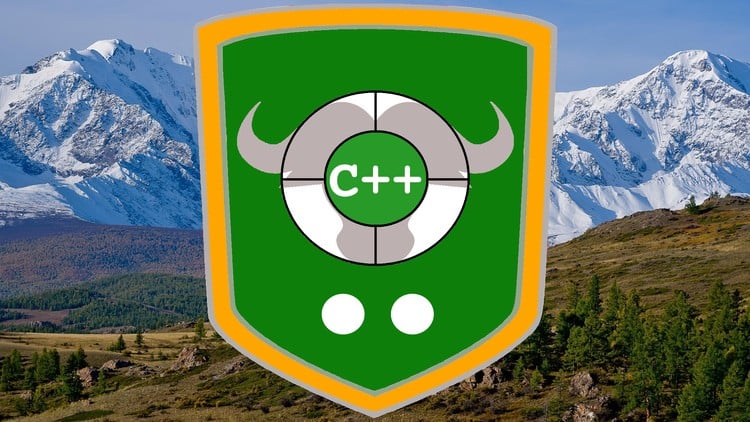
The C/C++ Transition
⏱️ Length: 7.2 total hours
⭐ 3.13/5 rating
👥 3,981 students
🔄 July 2023 update
Add-On Information:
Note➛ Make sure your 𝐔𝐝𝐞𝐦𝐲 cart has only this course you're going to enroll it now, Remove all other courses from the 𝐔𝐝𝐞𝐦𝐲 cart before Enrolling!
- Seamless C-to-C++ Transition: Explore the architectural shift from C’s procedural approach to C++’s object-oriented paradigm, understanding how C++ extends C’s capabilities and introduces new complexities in system design and implementation, preparing you for modern software development.
- Fundamental Object-Oriented Pillars: Delve into the core principles of Object-Oriented Programming (OOP), specifically focusing on designing robust classes, implementing inheritance for efficient code reuse, and mastering encapsulation to protect data integrity, laying a strong foundation for advanced C++ development.
- Resource Management Mastery: Gain proficiency in C++’s explicit memory management model, distinguishing between stack and heap allocations, and effectively utilizing `new` and `delete` operators to prevent common memory leaks and manage dynamic resources responsibly, crucial for stable applications.
- Advanced GNU Compiler Techniques: Acquire in-depth knowledge of the GNU Compiler Collection (`gcc`/`g++`), learning to leverage various compiler flags for optimized performance, strict standards compliance, and effective cross-platform development specific to the GNU ecosystem.
- Efficient Project Automation with GNU Make: Master the creation and maintenance of `Makefile`s to automate complex build processes, manage project dependencies, and streamline compilation for large-scale C/C++ applications, significantly enhancing development efficiency.
- Demystifying C++ Templates: Understand the power of generic programming by working with C++ templates, enabling the creation of flexible, type-independent code that can operate on a variety of data types without compromising safety or performance, a hallmark of powerful C++.
- Navigating Namespace and Exception Handling: Learn to organize code effectively using namespaces to prevent naming conflicts in larger projects, and implement robust error management strategies through C++’s exception handling mechanisms for resilient and fault-tolerant software.
PROS:
- Focused GNU Ecosystem: Provides practical, hands-on experience with the industry-standard GNU toolchain, essential for professional C/C++ development on Linux/Unix systems and understanding open-source project structures.
- Targeted Skill Enhancement: Ideal for intermediate programmers looking to solidify their understanding of the C to C++ transition and advanced OOP concepts in a concise, action-oriented format.
- Modernized Content: The July 2023 update ensures the course material is current and relevant to contemporary C/C++ practices, integrating modern insights into a foundation based around the C++ 2000 standard.
CONS:
- Limited Depth for Beginners: The “intermediate” focus and relatively short duration mean it may lack the comprehensive foundational coverage needed for absolute beginners or those seeking an exhaustive deep dive into every C++ feature.
Learning Tracks: English,Development,Programming Languages
Found It Free? Share It Fast!